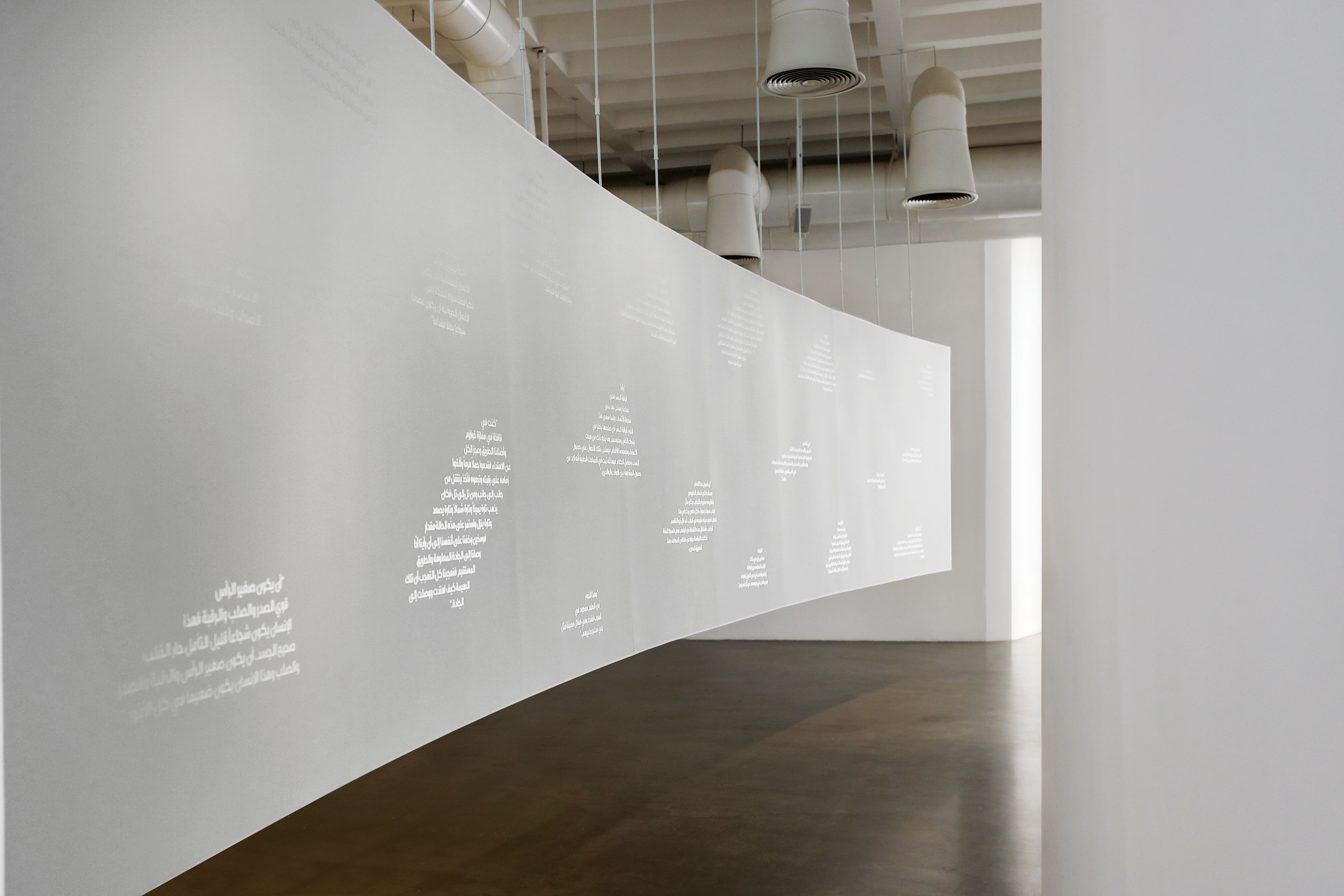
In recent years, Sharjah has become synonymous with history, arts, and culture. The mélange of historic sites which date back to Paleolithic, Neolithic, and pre-Islamic periods with the emirates’ affinity for modern art makes it the perfect backdrop to spark interesting conversations about topics that have fallen by the historical wayside. So, it comes as no surprise that Emirati designer Jawaher Al Khayyal has chosen to showcase her current and ongoing exhibition, We are the Imprints, at the contemporary 1971 – Design Space in Sharjah.
Inspired by the Arab philosopher and scholar Fakhr El-Din Al Razi’s reflections on the science of physiognomy, Jawaher set out to create an exhibit that would rouse discussions about the long-lost science. Anciently attributed to the Greek philosopher Aristotle, the principles of physiognomy are steeped in the concept that the ability to read someone’s personality and temperament by looking at his or her face is a science in itself. In his book Ilm Al-firasa ind Al Arab (The Science of Physiognomy amongst Arabs) Al Razi discusses the field of physiognomy, which has become an almost neglected discipline in our modern world, because of its mystic and intuitive aspects. Physiognomy, translated as firasa, was recognised by Arabs as a science like other crucial sciences in the past, such as astronomy, chemistry, and various systems of divination that were prevalent at the time. Renowned for introducing interactive experiences to urban environments, Jawaher explains, “Transforming an intangible science into a tangible design experience was the most challenging aspect of this project. While designing the space, my main goal was to create an experience that would make the visitor live through the journey of a curious physiognomist.” Hence, the 1971 – Design Space was an ideal mise-en-scène.
Located on The Flag Island in Sharjah, 1971 – Design Space is far more than an art gallery. The multifunctional design space is dedicated to the display and discussion of all forms of contemporary design ranging from graphic, furniture, and interior, to interactive design and new technologies. Working closely with regional designers, architects, and schools and universities, the space showcases a contemporary and cutting-edge mix of curated exhibitions and public programmes. As head of 1971 – Design Space, Fatma Al Mahmoud tells us, “At 1971 – Design Space, we try to focus our programmes and exhibitions on discussions of regional content in a contemporary manner. We work with renowned and emerging designers with the goal of translating subjects into all forms of design for projects and exhibitions while integrating public programming, in order to have the maximum impact and spread awareness on the importance of using design as a medium that highlights and communicates culture, as this is our top priority in the space.”

Jawaher explains how her interest in physiognomy was sparked when she stumbled upon the term whilst researching Arab astronomy. “I quickly got fascinated by this science which was once a highly respected study, and which we no longer hear anyone talking about.” As she dug deeper the impact of this science in everyday life became more pronounced, leading her to realise that, “We still use physiognomy in our lives today, but we no longer identify it as a science.” With the Arab proverb, “A man’s eye is the address to his heart” in her mind’s eye, she set out to uncover literature that explored the lost science of physiognomy. Ultimately finding the answers in al-Razi’s “Al-firasa,” she discovered that many parallels exist between al-Razi’s work on physiognomy and the works of early modern European inquirers. For example, even the word “physiognomy” is derived from the Greek word “physis” meaning nature and “gnomon” meaning interpreter. “Physiognomy is a branch from the science of human knowledge and is aligned to the science of anatomy, dissection and medicine. It is also associated with philosophy, psychology, astronomy, and astrology. The definition of this science has not changed much since the middle ages,” she explains. Acknowledging that physiognomy was lost to the larger worlds of astronomy and divination systems, which championed palm and forehead readings as a means of predicting ones’ future, Jawaher believes that that physiognomy is a combination of science, talent, and art. In her opinion, “Those who possess the characteristics or talent of an intuitive and intelligent physiognomist have the ability to easily read people and situations.”
Those who are familiar with her work will know that it is often a juxtaposition of art and design. However, transforming the intangible science of physiognomy into a tangible design experience was the most challenging aspect of this project. While designing the space, Jawaher’s main goal was to create an experience that gives the visitor a chance to live through the journey of an inquisitive physiognomist. As she candidly explains, “To me, design is storytelling. It is important that each space or product I design tells a story and explores traditional craftsmanship. Stories from the past and elements of nostalgia to create unconventional and engaging experiences, while including minimalism with maximum impact.” The title of the exhibition, We are the Imprints, reflects the impressions humans bestow upon each other – the way one’s physical appearance, behaviour, and our preconceived notions “imprint” a particular impression in our mind. With the homegrown 1971- Design Space providing the ideal space in which to make her vision come to life, Jawaher is one of a new breed of budding local artists who are putting the Middle East on the global cultural map. On a closing note she tells us: “Although we live in a very young country, the growth in the amount of aspiring artists and designers, backed by government support and a growing audience, all reassure a promising future for the creatives in the Middle East.”
Visit We are the Imprints at 1971 – Design Space until 30 November 2021 or discover more at 1971design.ae
